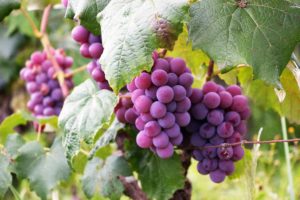I live near the wine country of Southern California. Just minutes from my home are countless rows of grapevines. The vineyards make for a lovely spring afternoon drive. The beautiful green leaves of the vines wave in the gentle breeze, and one can easily find him/herself transported to Tuscany or some such famous location. That is what it looks like now as the vines ripen and prepare to bring forth fruit for the harvest. Once the harvest is complete, and the season moves from summer to fall, the vines begin to change. The branches, once abundant in foliage, turn brown. The leaves, once lovely, fall. The time for harvest has passed, and the time for pruning has come.

The vine grower cuts back the lovely vines of spring and summer. He aggressively prunes them to avoid disease and rot. Walk through the vineyard in winter and you will see what appears to be a wasteland. It isn’t. It just looks that way. Another season of fruit and harvest will come, but this season of pruning must pass first.
In John 15:1-8, Jesus tells us that he is the vine and we are the branches. Most of the time when I hear that, I want to think of the springtime vineyard, and that is part of the story. It is clear from the reading there is an expectation that, if you are in Christ, connected to the vine, you will bear fruit. If there is no fruit coming from your branch, then there is a good chance the branch is sick, or may not be connected to the vine like you thought it was. You may not be connected to Christ. Regardless, no fruit means the branch is dead or dying, so the vine grower cuts it off.
Fruitful Branches Need Pruning
OK, easy peasy, bear fruit and we can avoid the shears. That sounds great. Just be a good Christian and everything will be awesome … except Jesus continues the metaphor. Not only do the fruitless branches get cut off, but “every one that does [bear fruit] he prunes so that it bears more fruit.” Remember the winter vineyard scenes I described a little earlier? It looks terrible. It looks dead, but it is not. The vine grower is actually preparing the vineyard for a new harvest. He needs to cut back the vines in order for the vineyard to continue to thrive. In our spiritual lives, that often takes us by surprise. Not every season is harvest.
 Sometimes God prunes. The Lord knows how to tend to his people. He is not content with last year’s harvest. He expects us to continue to bear good fruit. God works in us so we can do that.
Sometimes God prunes. The Lord knows how to tend to his people. He is not content with last year’s harvest. He expects us to continue to bear good fruit. God works in us so we can do that.
God loves you and honors you so greatly that, right now, where you are, when you say “yes” to his will, he will use you to accomplish his work. He will bear fruit through you. But, God loves you. He is not content to leave you right where you are. He wants to work in your life to make you holier, more like him. That can be really hard. The letter to the Hebrews gives some insight into how we deal with this pruning.
It is for discipline that you have to endure. God is treating you as sons; for what son is there whom his father does not discipline? If you are left without discipline, in which all have participated, then you are illegitimate children and not sons … For the moment all discipline seems painful rather than pleasant; later it yields the peaceful fruit of righteousness to those who have been trained by it (Hebrews 7-8, 10-11)
Preparing for the New Harvest
If we are going to grow, and stay alive in our faith we need to allow God permission to prune us. Yes, I love the harvest seasons of life. I love when I can see God moving in and through me. And no, I do not look forward to, or seek out, times of trial or pruning. I do not seek them out, but I do know that I need them. When trial comes, rather then rebelling, we need to submit our lives more deeply to Christ. It is during those seasons that God is working, preparing for the next harvest. We need to be pruned. We need to have the sick, sinful parts of our lives cut back so that a new season of harvest can come.
You May Also Like:
Does God Always Show Us the Fruits of Our Prayer? (Ascension Presents)
What is a Disciple?
Abiding in Christ: Reflection on the Gospel of John






0 Comments